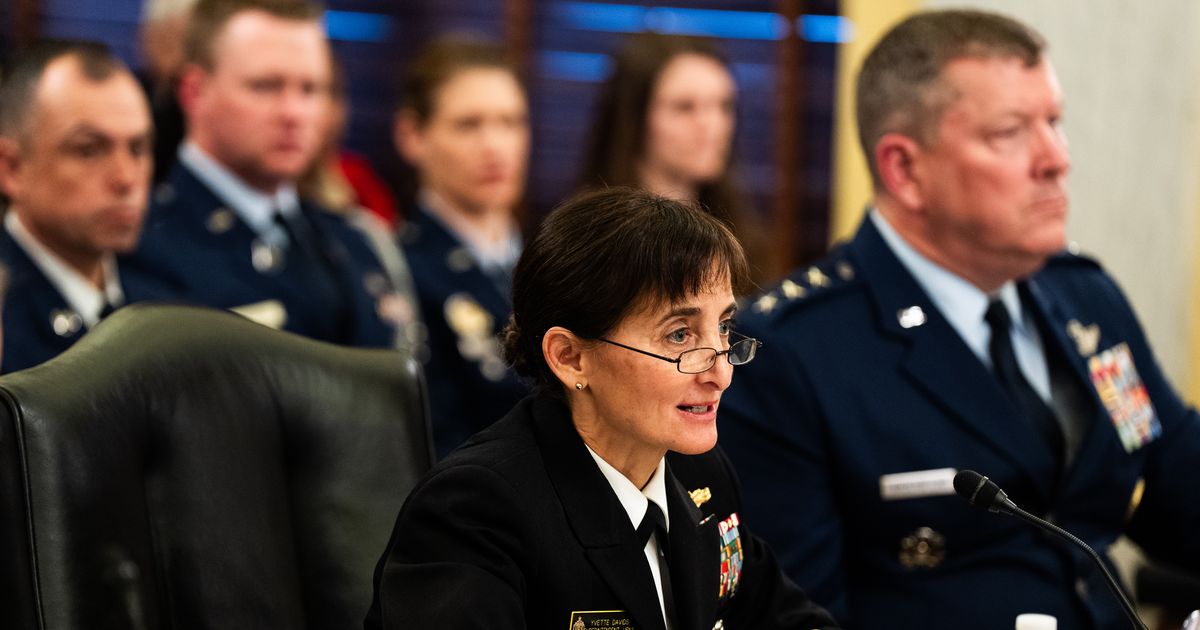Defense Secretary Pete Hegseth will replace the first woman to lead the U.S. Naval Academy, defense officials said, with the Trump administration expected to nominate a Marine Corps general to oversee the institution for the first time in its nearly 180-year history.
Vice Adm. Yvette Davids has led the Naval Academy since January 2024, and was about 18 months into serving in a job that typically rotates about every three to four years. Her expected replacement is Marine Corps Lt. Gen. Michael Borgschulte, who oversees personnel issues for his service as deputy commandant for Manpower and Reserve Affairs in Quantico, Virginia, defense officials said, speaking on the condition of anonymity to discuss the impending move.
Naval Academy officials on Friday referred questions to Hegseth’s office, which did not respond. The Navy and Marine Corps both declined to comment.
The unexpected decision comes as President Donald Trump, with Hegseth in the lead, has purged the military of numerous top military leaders – including a disproportionate number of women – whom they have accused of focusing too heavily on diversity. Since taking office in January, they have ousted the chairman of the Joint Chiefs of Staff, the top admirals in the Coast Guard and the Navy, the No. 2 officer in the Air Force, and several top military lawyers.
But the replacement of Davids is different than those decisions because, rather than retire, she will instead be nominated to serve in another role as a three-star admiral, overseeing naval operations, plans, strategy, and warfighting development as a deputy chief of naval operations, a defense official said. Though technically a lateral move, she was competitively selected for that position, received Trump’s approval, and, if confirmed by the Senate, will replace Vice Adm. Daniel Dwyer, who is expected to retire.
It was not immediately clear whether Davids voluntarily initiated her early departure from the prestigious Naval Academy posting.
Highlighting the unusual nature of the shake-up, the superintendent of a service academy, by law, typically must retire after serving in the position. The law leaves open the possibility of a superintendent moving on to another role at the discretion of the defense secretary and with a waiver, which Davids must receive to assume any new role.
“Bottom line, she competed against qualified candidates and won out,” a defense official said. “This certainly wasn’t just ‘given’ to her. Not in this environment.”
The decision comes after Hegseth has focused heavily on how the Pentagon’s next generation of officers are trained at the military’s service academies, and in May rolled back affirmative-action policies that considered race, gender, and ethnicity in admissions. He also ordered the service academies and the military’s war colleges to scrutinize its library collections for materials that are “incompatible” with its focus on training military officers to fight and win wars.
The personnel change, first reported by USNI News, could be announced as soon as Friday.
Davids graduated from the academy in 1989. Borgschulte, a fighter pilot, graduated from the academy in 1991.
The Naval Academy produces about 1,000 graduates each year, including about 250 new Marine Corps lieutenants. The faculty at the academy also includes both Navy and Marine Corps officers.
